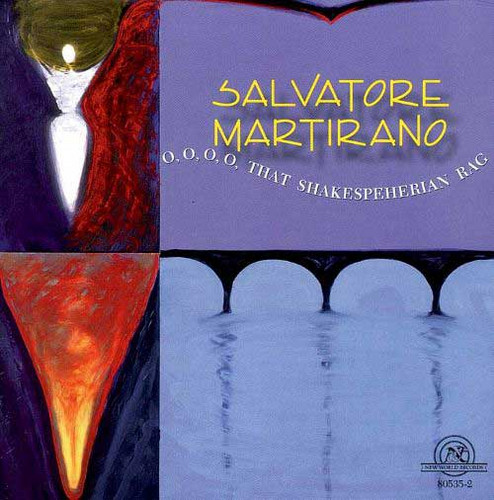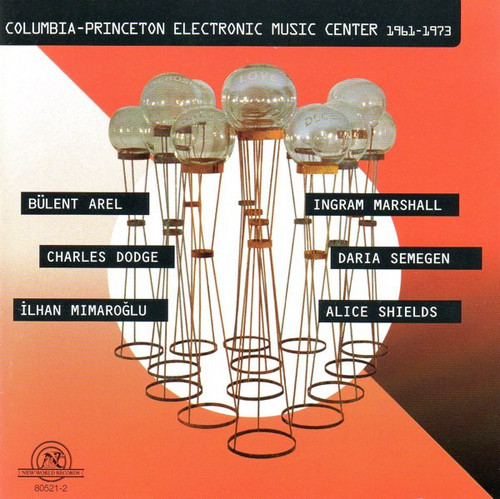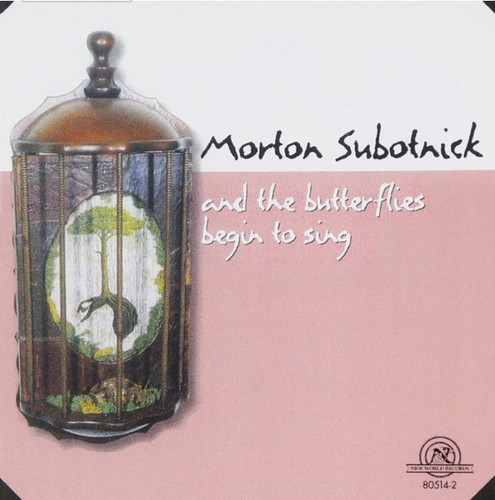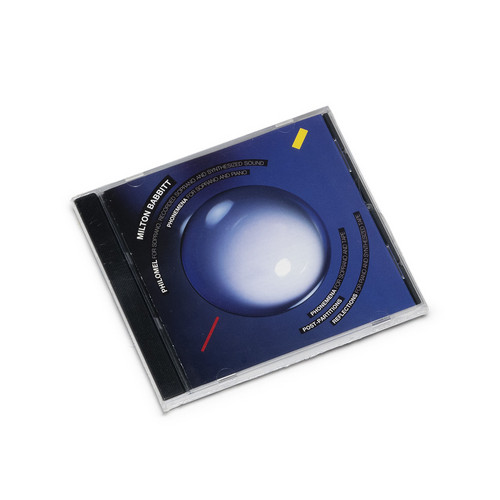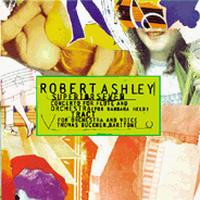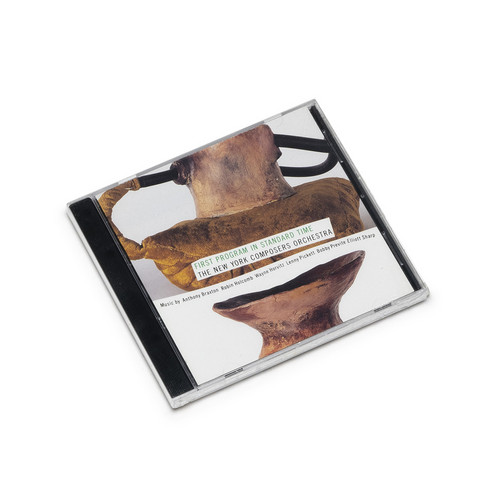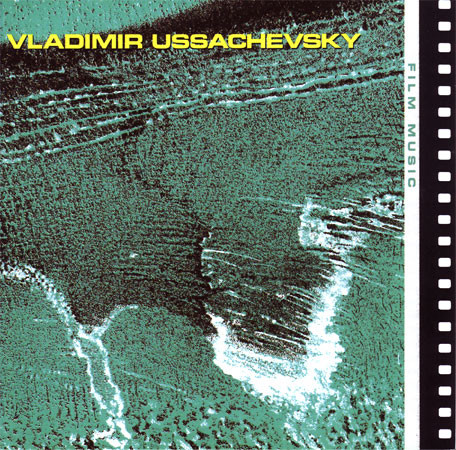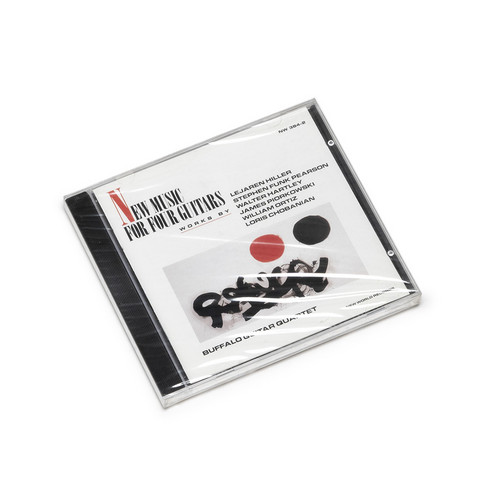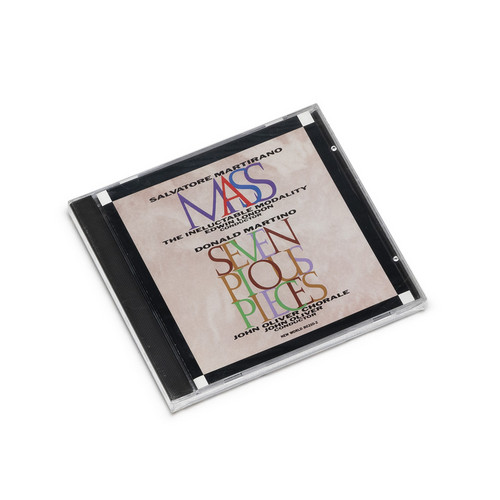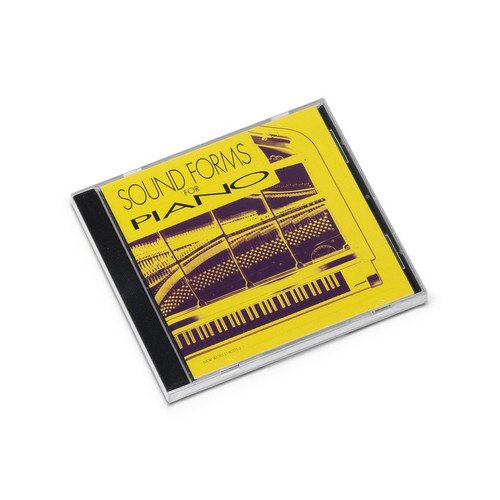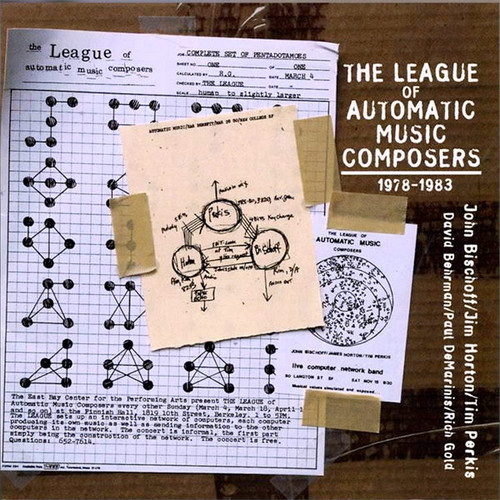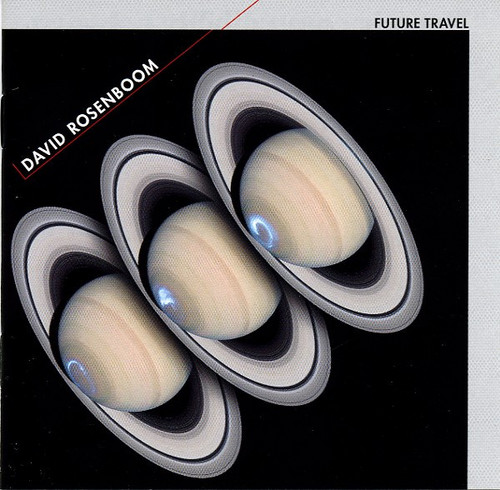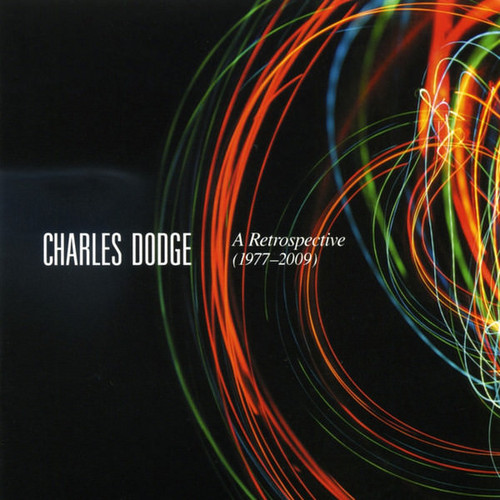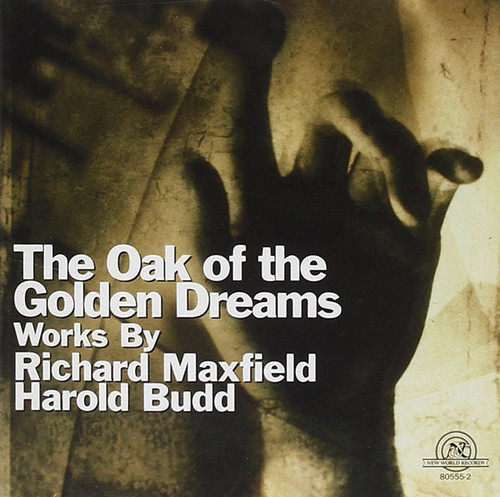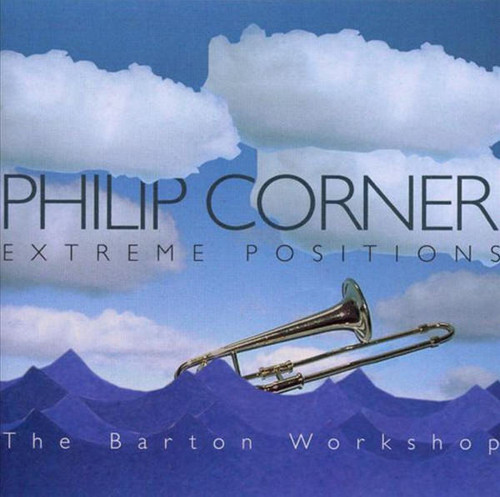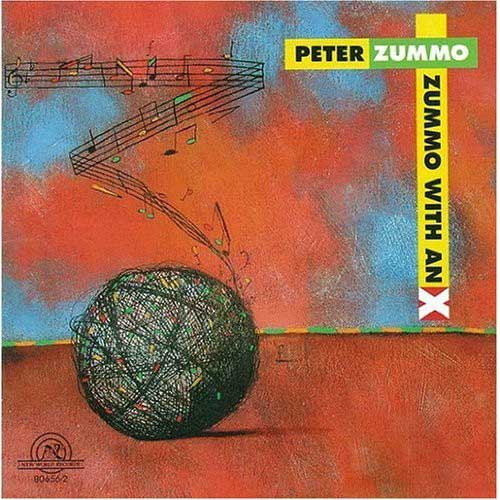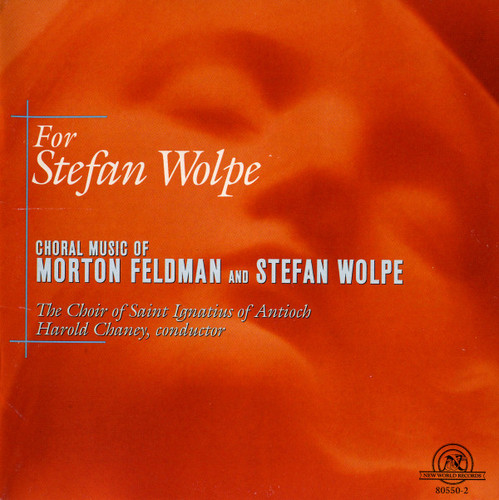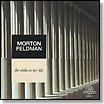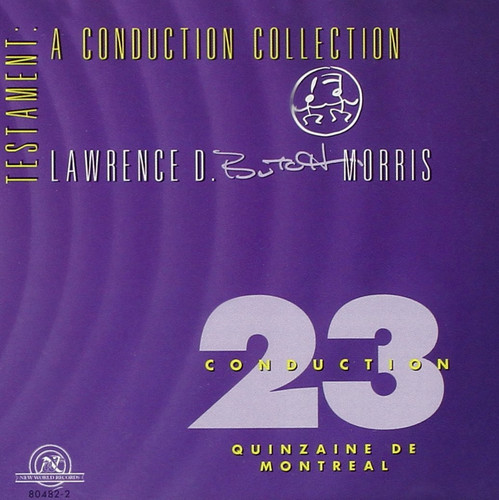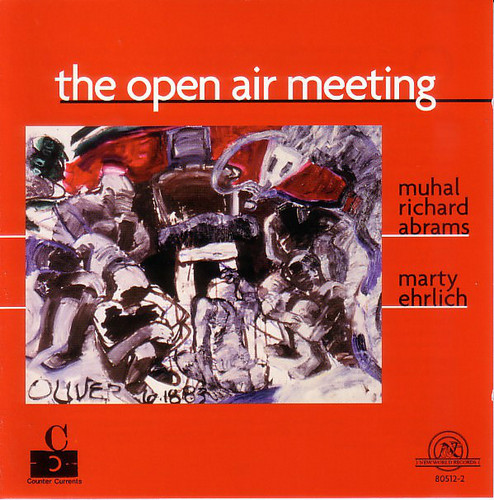★New World Records
O, O, O, O, That Shakespeherian Rag
O,O,O,O, That Shakespeherian Rag collects six of the most important compositions from his relatively small body of work. By the late 50s Martirano had begun to freely incorporate elements of jazz and popular music. O,O,O,O, That Shakespeherian Rag(1959), one of his two magnum opuses, is a prime example of this musical synthesis—a serialist choral setting of passages from three Shakespeare plays, accompanied by a chamber orchestra that includes a jazz ensemble. Schoenberg meets bebop in a wild, i…
Columbia- Princeton Electronic Music Center 1961- 1973
Works by Bülent Arel, Charles Dodge, Ingram Marshall, Ilhan Mimaroglu, Daria Semegen, Alice Shields. The Columbia-Princeton Electronic Music Center was the first electronic music center to be established in the United States. From 1959 to the late 1970s, it was one of the premiere sound facilities in the world. The vast majority of pieces composed at the Center - approximately three hundred - were composed during this period. Some have become classics of music history. This selection, draw…
And the Butterflies Begin to Sing
Both works on this disc share the trademarks of his unique style: the relentless, pounding motoric energy that merges, sometimes with startling suddenness, into a dreamlike texture that seems to float, the continual sense of something magical occurring, often produced with no more paraphernalia than a desktop computer. And the Butterflies Begin to Sing [for string quartet, bass, MIDI keyboard, and computer (1988)], conceived as music for an imaginary ballet, is based on The Hundred Headless Wome…
Philomel
Compositions performed by Bethany Beardslee and Lynne Weber (sopranos), Jerry Kudern and Robert Miller (pianos). The four works on this recording span a period of a decade and are among the best of Milton Babbitt’s output, tape and otherwise. Philomel, for soprano, recorded soprano, and synthesized sound, is one of the undisputed classics of electroacoustic music and this is its definitive recording. Two versions of Phonemena —one for soprano and piano, the other for soprano and tape— another vi…
Robert Ashley
Compositions performed by Barbara Held (flute), Thomas Buckner (voice), MIDI Orchestra. Robert Ashley is known primarily for his theater-based pieces and television operas. This new release presents the world premiere recordings of two of his “orchestral” pieces, Superior Seven (concerto for flute), and Tract (for orchestra and voice), where the orchestra is provided by a MIDI synthesizer. In Superior Seven, the flute floats freely in and out of an atmospheric electronic sound tapestry. It is a …
The New York Composers Orchestra: First Program in Standard Time
Acoustic jazz recording featuring Holcomb's eleven-minute title-track, Lenny Pickett's ten-minute Dance Music for Composer Orchestra, Elliott Sharp's eight-minute Skew and Horvitz's nine-minute Paper Money and an eleven-minute composition by Anthony Braxton.
Film Music
Ussachevsky was one of the most significant pioneers in the compositon of electronic music, and one of its most potent forces. He produced the first works of “tape music,” a uniquely American synthesis of the French musique-concrète and the German pure electronic schools. He co-founded the Columbia-Princeton Electronic Music Center in 1959 and directed its course for the next twenty years as the leading electronic music studio in the United States. This release couples two of his most powerful a…
New Music for Four Guitars
*2022 stock* An amazing collection of works by Loris Chobanian (Sonics), Walter Hartley (Quartet forGuitars), Lejaren Hiller (Metaphors), William Ortiz (Abrazo),Stephen Funk Pearson (Mummychogs (Le Monde)) and James Piorkowski (The Struggle of Jacob), performed by Buffalo Guitar Quartet.
Mass/Seven Pious Pieces
*2022 stock* This collection of two tonal works by composers known for their non-tonal compositional style is a fine example of contemporary approaches to sacred choral music. Salvatore Martirano’s Mass is a setting of a traditional Latin Mass whilst Donald Martino’s Seven Pious Pieces sets religious texts by Robert Herrick. The vocal writing is masterful with transparent textures and flowing contrapuntal lines.
Sound Forms for Piano: Cage/ Cowell/ Johnston/ Nancarrow
Works by John Cage, Conlon Nancarrow, Ben Johnston and Henry Cowell. Performed by Robert Miller, piano.“...in the past, the point of disagreement has been between dissonance and consonance, it will be, in the immediate future, between noise and so-called musical sounds.” — John CageThe most characteristic features of American music are its eclecticism and innovation. The works presented here are perfect examples; their only common feature is that they were written for a piano altered in some w…
1978-1983
John Bischoff, Jim Horton, Tim Perkis, David Behrman, Paul DeMarinis, Rich Gold. 'The League of Automatic Music Composers was a band-collective of electronic music experimentalists active in the San Francisco Bay Area between 1977 and 1983. Widely regarded as the first musicians to incorporate the newly available microcomputers of the day into live musical performance, the League created networks of interacting computers and other electronic circuits with an eye to eliciting surprising and new '…
Future Travel
Long out of print in its original, 1981 LP version from Street Records, Future Travel, has now been released again, remastered for digital media, by New World Records (80668-2). All the music composed and performed by David Rosenboom from this historic album is included, along with a new version of And Out Come the Night Ears, which was first introduced on an LP from 1750 Arch Records in 1978. One of the first albums composed almost entirely with a digital synthesizer, Future Travel, features th…
A Retrospective (1977-2009)
The music on this disc was written over a period of more than thirty years. Over the course of those years, so much has changed in technology, in music, in life in general. But throughout the work represented here one can recognize the remarkable, entirely original voice of Charles Dodge (b. 1942). He is truly a composer who writes music that does not sound like anybody else's. He has never been part of any “ism” or movement; he is his own category. And although his stylistic approach and his…
The Oak of the Golden Dreams
Important reissue of two historic minimalist albums, originally released on LP via the Advance label and out of print for decades now. Mastered from original tapes according to the composers original specifications. Packaged with informative liner notes by Kyle Gann, including an overview discography for seminal works within the field of minimalism. This timely CD reissue combines two LPs from the Advance label-Richard Maxfield’s Electronic Music and Harold Budd’s The Oak of the Golden Dreams-bo…
Extreme Positions
Philip Corner was an active member of Fluxus, a founder of the Tone Roads Chamber Ensemble, the resident musician and composer for the Judson Dance Theatre, and co-founder of Gamelan Son of Lion. The musical opportunities that these ensembles and their performances offered Corner ensured that he was both prolific and had or developed a deep understanding of the important artistic influences of that time. Corner uses a variety of scoring methods. He is truly the equal of John Cage in forcing us t…
Zummo with an X
Peter Zummo (born 1948) is an American composer and musician. He plays the trombone, valve trombone, euphonium, synthesizer, other electronic instruments, and also sings. He is associated with the post-minimalist and Downtown aesthetics, and he describes his music as "minimalism plus a whole lot more." "I first discovered Peter Zummo when I first discovered Arthur Russell. I kept hearing THAT trombone sound throughout Arthur's music and through scanning through various label credits made the con…
Choral music of
Choral Music of Morton Feldman and Stefan Wolpe
Stefan Wolpe (1902-1972), one of the great teachers in
twentieth century music, is also now recognized as one of its most
significant composers. His Two Chinese Epitaphs, composed in
Jerusalem in 1937, illustrates the composer's deep allegiance to
socialist issues. He wrote the work swiftly and in anger, just after
learning that the Basque town of Guernica had been bombed by the
Fascists the previous week. He chose to set two poems by Louise …
The viola in my life
"The music on this recording illustrates the essential integrity of the work of Morton Feldman (1926-1987) and one of its fundamental strengths -- its continuously unfolding unanimity of purpose. There are few composers of his generation whose first and last published work (in Feldman's case 'Journey to the End of Night' of 1949 and 'Piano and String Quartet' of 1986) span youth and final years with such a concentrated viewpoint. There are, however, landmarks in the music of Feldman that are lar…
The Open Air Meeting
Muhal Richard Abrams: piano; Marty Ehrlich: alto saxophone, clarinet.
This disc is taken from a live recording of an open air concert
which took place August 11, 1996 at the Brooklyn Museum in New York.
This duet concert was, on one level, a meeting between two of the
seminal jazz innovators of their respective generations. The nuanced and
subtle interchange of ideas between these two great musicians-as they
challenge and provoke each other to explore new musical ground-is
enthralling thr…
